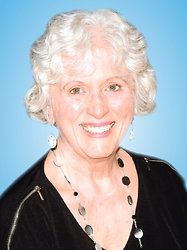Finding new resolve to get organized at home has turned out to be a trip down memory lane as well as a therapeutic exercise. Recently, I sorted through cards and correspondence for several hours on a Saturday afternoon, and found it impossible to sort the letters (remember handwriting?) without reading them.
That organizing venture left me with one central question. When, I wondered, did we stop writing letters?

Email and all the social networking avenues have actually increased our communications dramatically, but at the expense of poetry and in-depth prose enhanced with expressions of feelings and colorful details of daily life, not to mention the sense of satisfaction of finishing a handwritten, carefully crafted, personal letter. What we have in its place is a plethora of photos, forwarded by cell phones, and more detail of minutiae in abbreviated text than anyone ever wants to know-. "I'm starting dinner now-." flying across the new mini-media.
At the other end of the meaningful scale, lovers feed breathlessness by communicating every other minute via electronic device - but they also leave that trail that can end up on CNN, revisited by millions on the hour, every hour. A handwritten letter, even though a hard copy, is most often read only by the intended receiver. There is much to be said for that.
After years of learning from Betsy Patterson's fascinating column that handwritten strokes reveal specific traits of the writer, I pay attention to the ever-varied handwriting on old letters, learning from both the words and those handwritten strokes. Was the writer optimistic? Fearful? Truthful? It's fascinating!
I rarely abbreviate in emailing, other than an occasional BTW (by the way), probably because I am not yet part of the texting-driven generation who use cell phones for every manner of communication. Perhaps we will all go that way eventually. There is something lost in quick communication, however. Perhaps it is the depth of communication once revered or maybe the pleasure of handling paper with ink strokes penned just for us. Maybe it is the knowledge that the handwritten letter involves taking the time and care that suggests the receiver really matters to the writer.
Jean Loxley-Barnard has been a writer all her life and studied both sociology and psychology at George Washington University where she earned a B.A. Her company, The Shopper, Inc., encompasses all the Loxley-Barnard family publications - The Shopper Magazines and Doctor to Doctor Magazine. She has been in the advertising, consulting and publishing business for 39 years.

